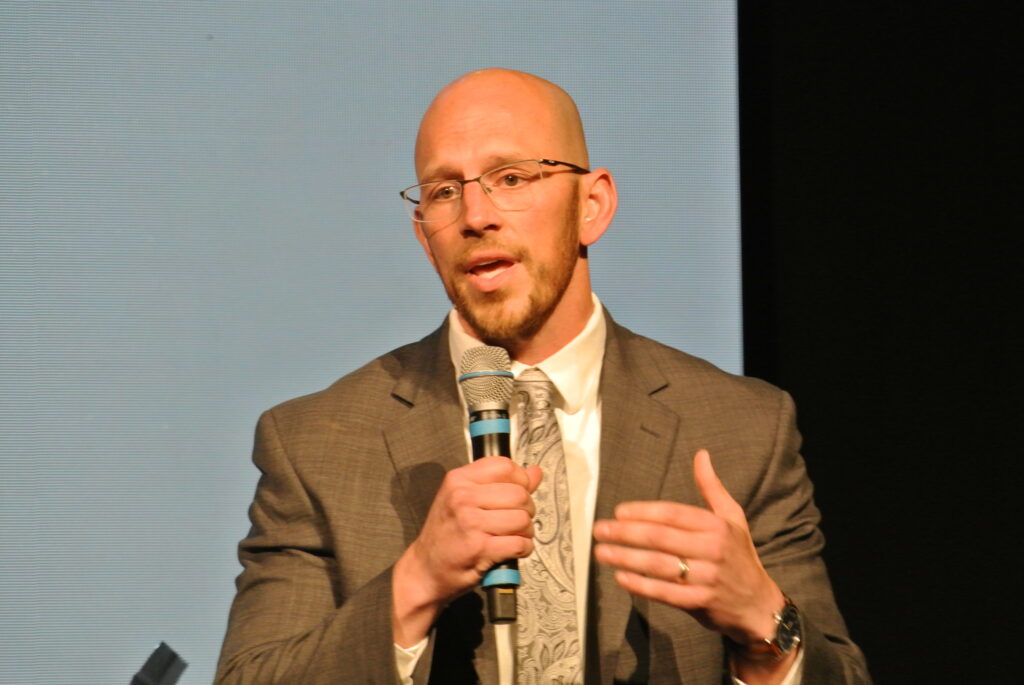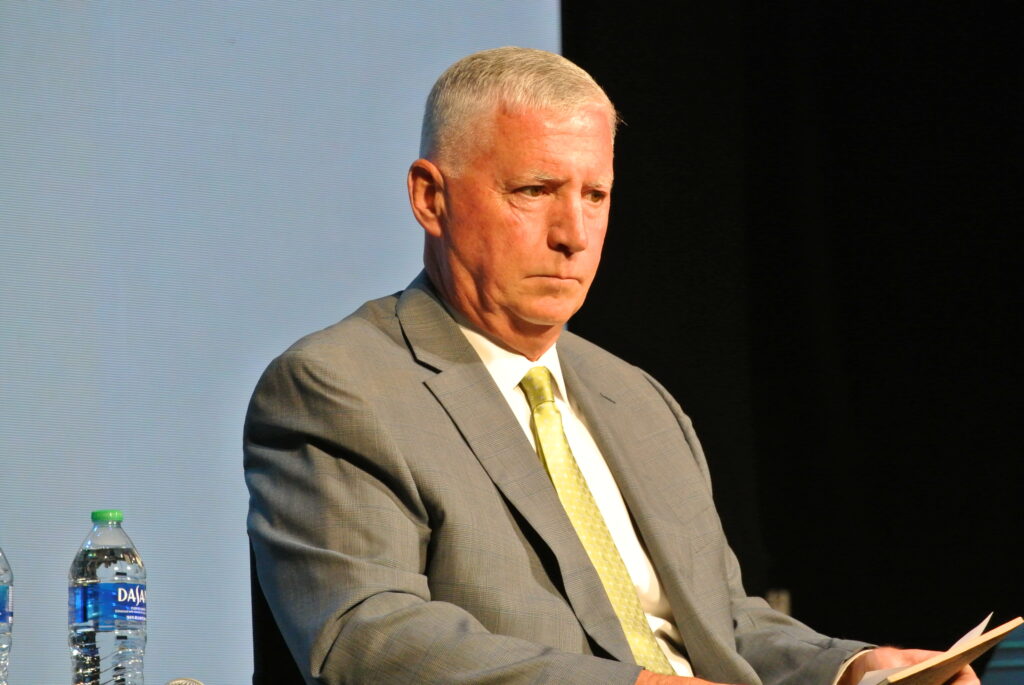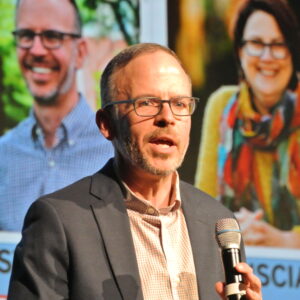The issues of homelessness, crime, and opioid addiction dominated the conversation at the first mayoral forum in Manchester on Wednesday night. They also revealed a divide between the approach the candidates would take to address them, with Republican Jay Ruais urging more policing, while the three Democrats raised concerns about equity and discrimination.
“Structural racism does play a role in this city; we are not immune from that,” warned Alderman Will Stewart (D-Ward 2) in front of a crowd of several hundred people at the Rex Theatre. Ruais and Stewart were joined on stage by Ward 1 Alderman Kevin Cavanaugh and At-Large Alderman June Trisciani.

Jay Ruais
As mayor, Ruais said he would increase public safety by giving police the tools they need to protect the Queen City. “We have got to get violent criminals off our streets,” Ruais said. He also supported closing a loophole and allowing police to prevent more people from camping in public spaces.
One striking difference was in the responses to a question about Manchester Police Chief Allen Aldenberg’s plans to use data to focus police activity in neighborhoods considered crime hotspots.
Stewart and Trisciani worried that policing focused on tacking criminal hotspots would lead to racial profiling.
“Over-policed neighborhoods based on hotspot data, those are marginalized communities,” Stweart said.
Rather than targeted policing in high-crime areas, Stewart proposed efforts to get people to know one another in their neighborhoods, like block parties and other social events.
Triciani favors a community policing approach incorporating hotspot data while striving for equality. “We still need to treat everyone equally,” Trisciani said.

Manchester At-Large Alderman June Trisciani
Cavanaugh suggested there could be some creative ways for people in non-hotspot neighborhoods to still feel safe while police were tackling crime.
For Ruais, the solution is filling the 22 empty positions in the Manchester Police Department and letting those officers do their jobs. “We have to create a better environment for our police,” Ruais said.
Ruais viewed to help get rid of the state’s bail system, which he said is keeping violent criminals on the streets. “We need to fix our broken PR bail system,” Ruais said.
When asked about issues of diversity in the city, Ruais was the only candidate to answer part of the question in Spanish.
Taxes and spending were also part of the conversation. Cavanaugh and Stewart both said they supported letting voters decide whether to give the Manchester School Board the power to create their own budget, independent from city government. Ruais opposed it, saying Manchester taxpayers were already under too much stress.

Manchester Ward 1 Alderman Kevin Cavanaugh
On the proposed $800 million commuter rail project, all three Democrats supported the idea, and Trisciani wants it to extend to include Concord. Ruais said none of the proposals for a rail line connecting Manchester to Boston made fiscal sense. “I understand the why; I have yet to see the how,” Ruais said.
A financial analysis of the rail proposal anticipates the construction and operation of a Manchester station at an estimated $51 million, all from city coffers.
Manchester can’t afford a rail line given the school district’s aging buildings, unaffordable housing, and a city budget Ruais called a ticking time bomb that uses one-time federal grants to pay for ongoing expenses.
“When do the taxpayers get a break?” he asked.



